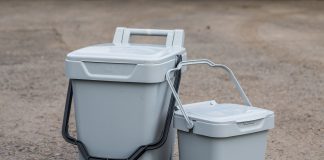Redcar and Cleveland Council have ordered new food waste trucks in preparation for weekly household collections that are due to be rolled out under Government plans from April next year.
The local authority said it had bought seven, 12 tonne vehicles as part of a procurement process.
Meanwhile, a spokesman also told the Local Democracy Reporting Service it would be taking on new staff as part of the changes.

A report covering the portfolio of cabinet member for neighbourhoods, Cllr Adam Brook said planning was “well underway” and the tendering exercise also involved other Teesside councils.
Delivery of the food waste containers that will be required by residents was also expected by the end of the year with these also due to be purchased.
The report said: “A key element of the roll out of this new service will be the communications and the Tees Valley councils are working closely on this to share resources and ideas to ensure the message is clear.
“It is intended to introduce the new system in phases rather than all at the same time, to assist with the logistics of receptacle deliveries and respond to residents’ questions or concerns.”

It said communications would include a ‘welcome pack’ being delivered with the new containers, while there would also be website and social media updates, and leaflets and stickers produced.
A spokesman for the council said: “We will be taking additional staff on for the collections, but recruitment has not yet started as we are awaiting confirmation from the Government on the revenue funding we will receive.”
It was expected the overall costs of the scheme would be “fully funded”, they added.
Other councils are also in a similar state of preparedness with Stockton Council stating it was in the process of awarding contracts related to food waste collections.
The council agreed a new waste management strategy last year in order to make improvements to services, while helping the environment and potentially saving money in the long term.
It previously said each household was to receive an additional weighted bag for the collection of dry recycling and a new five litre indoor and 23 litre outdoor caddy, including caddy bags, for food waste, the aim being to increase the amount of waste collected and recycled.
Speaking in October last year, Cllr Clare Besford, the cabinet member for environment and transport, said: “The borough’s current recycling rate is the lowest in the Tees Valley.

“Introducing a weekly recycling collection, alongside a weekly food waste collection will hopefully encourage households to recycle more.
“The removal of food waste and recyclable material allows the residual household waste to be collected fortnightly.
“It will also help the council move forward with our commitment to the environment, reduce costs and, most importantly, continue to provide an outstanding service to our residents.”
In Middlesbrough, residents will also be taking delivery of two new food waste caddies next year, a smaller caddy intended for the kitchen and a sealed unit to be stored outside properties.
In February, the council’s director of environment and community services, Geoff Field said it too was buying special vehicles to transport food waste, while more waste education officers were being employed to help the public with the transition.
He also reiterated that costs were being paid by the Government and there should be no impact on council tax.
The Government is aiming to halve food waste – that which ends up in landfill – by 2030 with weekly food waste collections being just one part of a whole system approach.
Businesses with ten or more employees are already required to have separate food waste collections in place, while manufacturers are being incentivised to reduce packaging waste and make it easier to reuse.
Continued campaigns such as ‘Love Food Hate Waste’ and Food Waste Action Week are also intended to help educate consumers.




